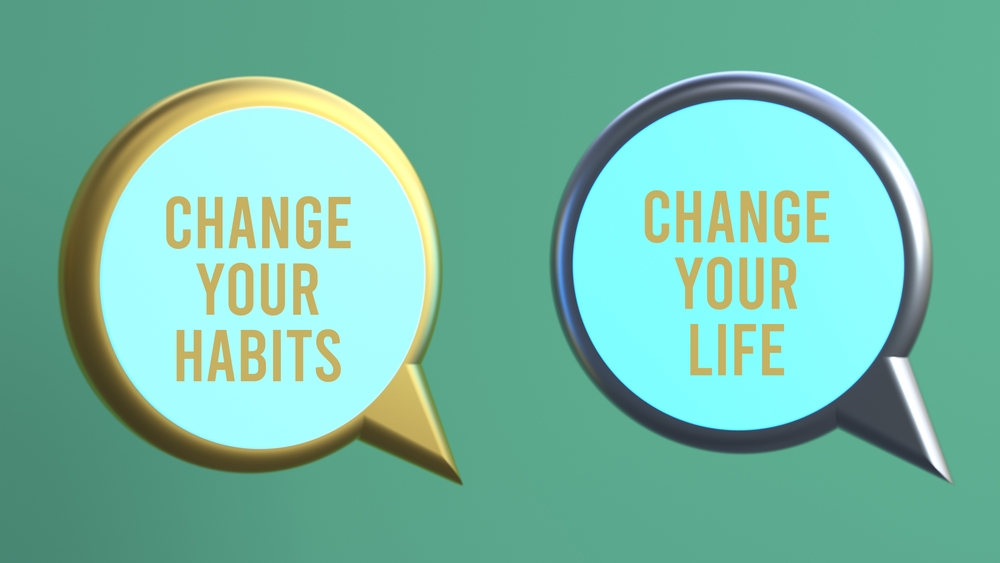
We've all been there. Excited to start fresh with shiny new goals that we're super excited about. When it comes to wanting to create new habits, it's easy to go all in and do too much too soon. Things may go well for a bit and then, after not too long, we lose our rhythm and motivation and become disappointed in ourselves for falling short.
Why is it so difficult to sustain new patterns and habits? And how do our habits come to be in the first place?
Essentially, our brain is constantly looking for a way to minimize effort and conserve energy. It will look to create a routine into a habit and once a habit is established, it's not likely to be forgotten.
When we are in the process of forming a habit, by repeating a behavior pattern over and over again, we are grooving a new neural pathway in the brain. When we decide we want to change that pattern, it takes much more time and effort on the front end. That's because we have to harness to power of the conscious mind, which works very slowly and requires much more energy than the subconscious mind.
The subconscious is where our habits are embedded and it processes information very quickly. It's what we know as "autopilot." We rely on it constantly to streamline our day. That's why we can drive to the supermarket or brush our teeth with little to no effort or focus. And our brain prefers that.
Here's where what's called the habit loop (coined by Charles Duhigg in The Power of Habit) comes in. This is what motivates our behavior. First, there's a cue or trigger such as emotional stress or maybe the smell of baked goods nearby. This cue signals the brain to follow a pattern that leads to the behavior (eating the baked goods) and then finally the reward.
The reward is a neurochemical response, aka a dopamine hit. Dopamine is a feel-good chemical that's released when we complete the behavior. The reward is relief.
But don't despair! There is more and more evidence that supports various options for change.
Here's what you can do to get started on creating lasting habits:
Build identity-based habits. James Clear, author of Atomic Habits, discusses the idea of building identity-based habits, which means when we focus on who we want to become as opposed to what we want to achieve we can increase our chance of success in reaching our goals. For example, if you believe you're a disorganized person, it will be more difficult for you to succeed in practicing strategies to stay organized than if you began to change that belief about yourself. So, how do you do that?
Starting small can be extremely helpful in reinforcing that identify change. If your belief is that you're a disorganized person and you start clearing your kitchen counters for just two minutes every day and you're consistent, you'll begin to feel like an organized person.
Clear says this is because "your habits are how you embody your identity." You are no longer looking to actively change your behavior, rather you're acting in alignment with who you believe yourself to be.
Make the distinction between goals and habits. A goal is an outcome, such as a desire to lose weight or eat healthily. Habits are specific action steps you take, such as exercising every morning or consuming a certain amount of protein or vegetables.
To take that even further, Clear talks about the importance of what's called implementation intention, which is a plan that you set up ahead of time to practice a new behavior at a particular time and a specific place. For example, "I will exercise every morning at 7am for 30 minutes in my basement" or "every day I will eat 6 ounces of protein and 2 servings of vegetables for lunch and dinner in my kitchen."
Use the two-minute rule. Any new habit can be scaled down to a two-minute version: "get in 10,000 steps a day" can start with "go for a two-minute walk" or "journal about my day every night before bed" can begin with "write two sentences every night."
Clear talks about the idea of stopping the activity just before it feels like a chore. The key is to be consistent. You're building a foundation and with each small step you're creating more and more momentum.
Update your environment. If you want to spend less time on your phone, keep it in another room out of reach. To make it easier to cut our sugary foods, don't buy them and instead keep some fruit on the counter to snack on.
Add one small behavior to an already established habit or routine. Make an intention: "after I have my coffee each morning, I will meditate for 10 minutes" or "when I finish my bedtime routine, I'll journal for 5 minutes."
Create an accountability pod. Even if it's only one person, being accountable to someone else tends to help us keep our commitments and follow through. Your pod can also offer you support and encouragement throughout the process.
Celebrate your small successes! Healthy habits take time to take hold and it can often feel like you're not making much progress in the short-term. Don't underestimate your consistent persistence. It will pay off in the long run!
Now, get going, you can do this!!
For more specific instruction on how to build good habits, I recommend the book Atomic Habits by James Clear.
Want the Relieve Your Anxiety free resource?
Click the button to get yours now!
